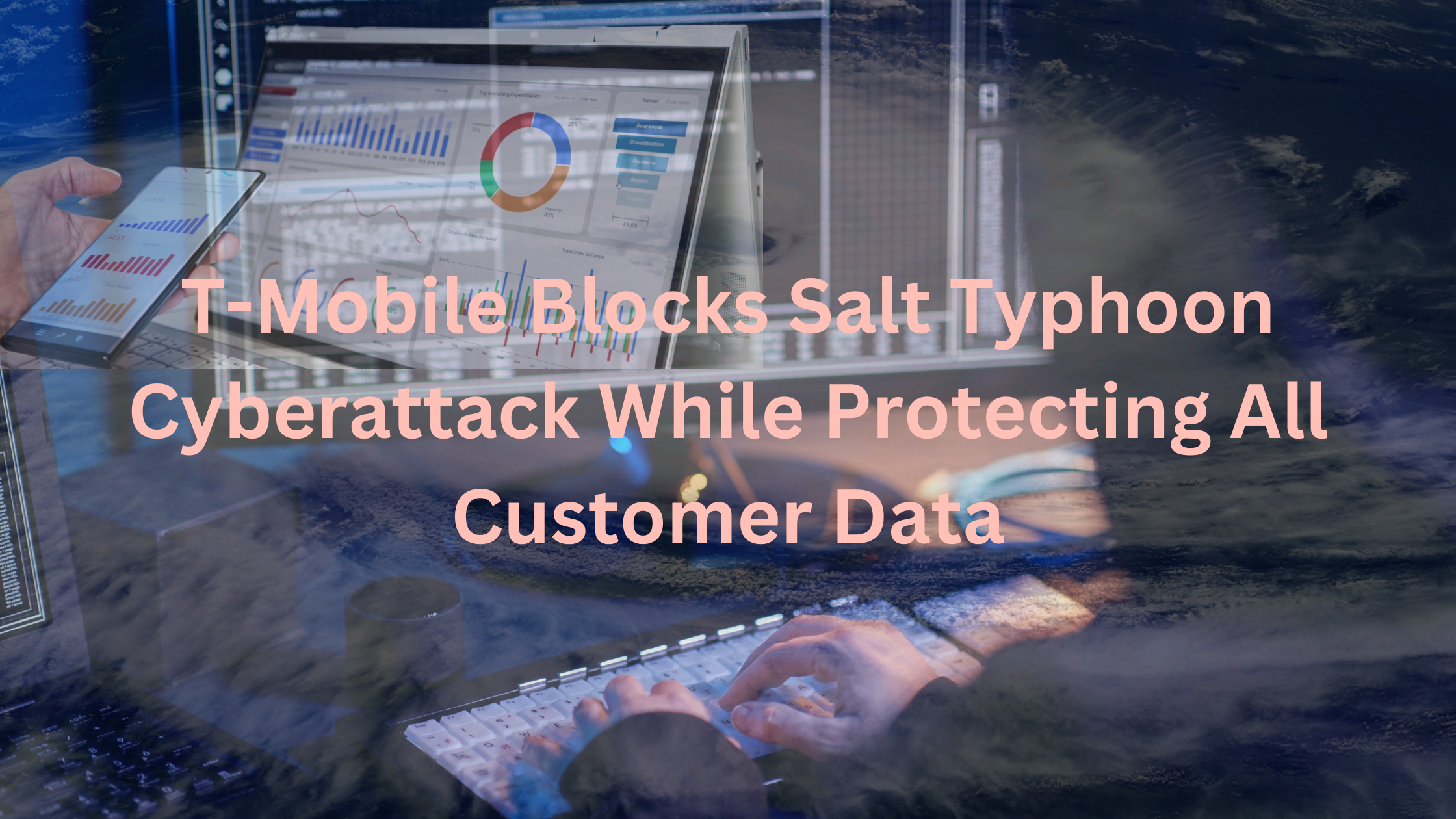Table of Contents
T-Mobile Blocks Salt Typhoon Cyberattack While Protecting All Customer Data
In a significant cybersecurity victory, T-Mobile US has successfully thwarted a sophisticated cyberattack attempt, reportedly linked to the Chinese state-sponsored hacking group known as Salt Typhoon. The telecom giant's robust security measures prevented any breach of sensitive customer data, setting it apart from other major US carriers that may have fallen victim to the same threat actor.
Jeff Simon, T-Mobile's Chief Security Officer, revealed that the company detected multiple infiltration attempts on its systems over the past few weeks. These attacks originated from a compromised wireline provider's network connected to T-Mobile's infrastructure. Upon discovery, T-Mobile swiftly severed the connection to the affected network and implemented additional control measures.
The Salt Typhoon group, also known as Earth Estries or FamousSparrow, has been active since at least 2019. The group typically targets government entities and telecommunications companies, with a particular focus on Southeast Asia. In recent months, Salt Typhoon has allegedly compromised several US telecommunications providers, including AT&T, Verizon, and Lumen Technologies, as part of a larger cyberespionage campaign.
Unlike its competitors, T-Mobile claims that its security protocols successfully prevented the attackers from breaching sensitive customer data. Simon emphasized that no calls, voicemails, text messages, or other private communications were accessed during the attempted intrusion. This outcome stands in stark contrast to reports suggesting that other providers may have experienced more severe breaches, potentially exposing customer information and even allowing attackers to access real-time audio calls and text messages.
T-Mobile attributes its success in repelling the attack to several factors. Following previous security incidents, the company has made significant investments to enhance its cybersecurity capabilities. These improvements include the widespread implementation of multi-factor authentication, network segmentation to limit the spread of attacks, comprehensive activity monitoring, and accelerated system patching.
The telecom provider has also bolstered its defenses with advanced tools for detecting and mitigating unauthorized activities, rigorous security testing, and a bug bounty program to identify potential vulnerabilities. T-Mobile's standalone 5G network, featuring advanced encryption and enhanced authentication, is said to provide additional protection compared to older 4G infrastructure.
The incident highlights the ongoing challenges faced by telecommunications companies in protecting their networks and customer data from state-sponsored cyber threats. The US government has taken notice of these attacks, with the FBI and the Cybersecurity and Infrastructure Security Agency (CISA) confirming their investigation into what they describe as a "broad and significant Chinese espionage campaign" targeting telecom infrastructure.
Senator Mark Warner, chairman of the Senate Intelligence Committee, has called the Salt Typhoon cyberattacks the "worst telecom hack in our nation's history." The FBI has reportedly identified and notified 150 victims, with a majority located in the Washington, D.C. area.
T-Mobile's successful defense against this attack demonstrates the importance of continuous investment in cybersecurity measures and the need for rapid response capabilities. As cyber threats continue to evolve, telecom companies must remain vigilant and adaptive in their security strategies to protect their networks and customers' sensitive information.
The company has shared its findings with US government agencies and industry leaders to aid in the collective fight against such cyber threats. This collaborative approach underscores the importance of information sharing and cooperation between private sector entities and government agencies in combating sophisticated national security threats.
Visit our website to get cybersecurity updates like this, thesecmaster.com, and our social media page on Facebook, LinkedIn, Twitter, Telegram, Tumblr, Medium, and Instagram and subscribe to receive tips like this.
You may also like these articles:
T-Mobile Successfully Detects and Blocks Hacking Attempt on Its Network
Chinese Threat Actor SilkSpecter Launches Massive Phishing Campaign Against Holiday Shoppers
Intel 471: Report Highlights Evolving Cyber Threats from Chinese APT Groups
Microsoft Unveils Advanced North Korean and Chinese Cyber Operations at CYBERWARCON 2024
T-Mobile Confirms Breach in Chinese Cyber-Espionage Campaign
Anthony Denis
Anthony Denis a Security News Reporter with a Bachelor's in Business Computer Application. Drawing from a decade of digital media marketing experience and two years of freelance writing, he brings technical expertise to cybersecurity journalism. His background in IT, content creation, and social media management enables him to deliver complex security topics with clarity and insight.
